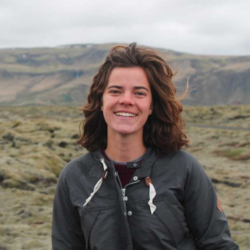
Please join the Political Theory Colloquium as they host Leah Downey, Junior Research Fellow at St. John’s College, Cambridge affiliated with the Department of Politics and International Studies (POLIS).
Abstract: Insofar as governments want to secure a democratic green transition, attention must be paid not only to which policy approach will be effective, quick, or cheap, but also to which policy approach preserves the power of citizens to coerce private agents through public policy. I defend this claim by extending the work of Danielle Allen to argue that the presence of persistent winners threatens democracy. Consequently, while most democratic theory has focused on the necessary limits to a state’s coercive powers, I suggest we must also consider the need to preserve those powers over time. I argue that an uneven balance in the state’s capacity to coerce particular agents would hamper the process of citizens taking turns in bearing the burdens downstream of state policy and thus constitute a threat to the political equality foundational to democracy. To make my argument, I deploy Nozick’s traditional and narrow definition of coercion and utilize the work of Fred Block and Elizabeth Popp-Berman to outline the concept of the hidden state. Together, this allows me to demonstrate that the contemporary hidden state approach to macrofinancial policy is largely noncoercive, and as such, constitutes a threat to the political equality foundational to democracy.
Leah Downey is a Junior Research Fellow at St. John’s College. Before coming to Cambridge Leah was a visiting researcher at the Sheffield Political Economy Research Institute (SPERI). She received her PhD in Political Theory from Harvard University in 2022, her MSc from LSE, and Bachelor’s degrees in both Mathematics and Economics from the University of North Carolina at Chapel Hill.
With support from: Alice Kaplan Institute for the Humanities.
Audience
- Faculty/Staff
- Student
- Graduate Students
Interest
- Academic (general)